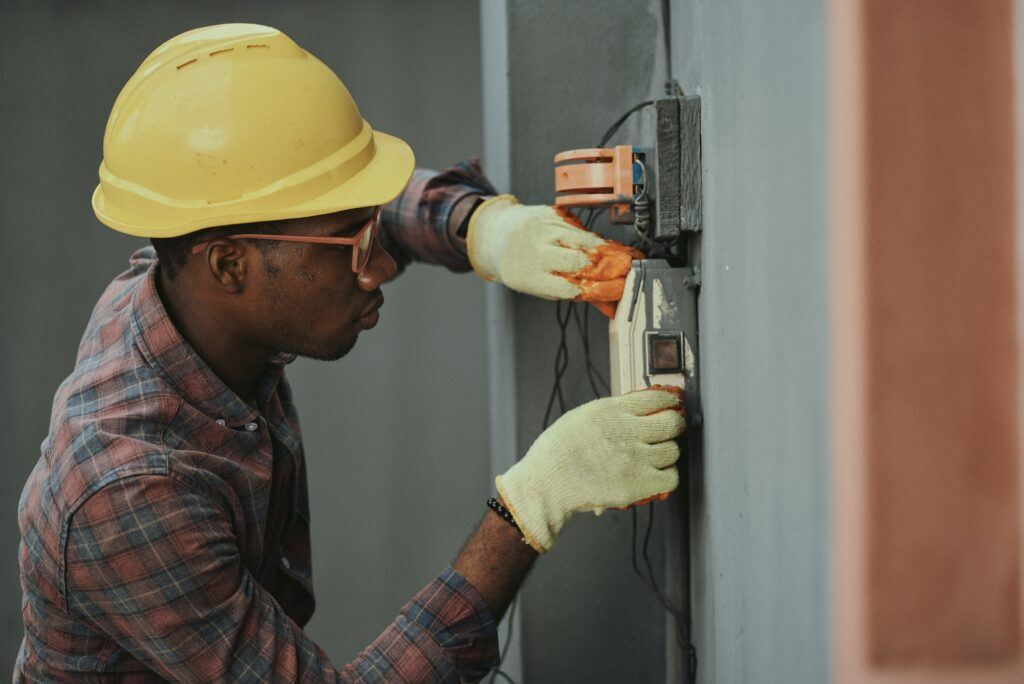News & Events
February 11, 2022
How Much Does It Cost To Become An Electrician?

Pursuing electrician careers requires a comprehensive review of the investment needed to become a certified professional. You’ll need to complete a training course and acquire a license. The profession also features equipment costs and other miscellaneous expenses. Here’s an overview of how much it costs to become an electrician:
Electrician Careers Training Costs
You need the training to become an electrician. The cost of acquiring the necessary skills will depend on the program and school you choose. You can select vocational/trade schools, apprenticeship programs, and community colleges/universities. Each option has unique benefits and associated costs, as illustrated below:
1. Electrician Trade/Vocational Schools
Vocational schools offer programs allowing you to acquire the skills needed for entry-level electrician careers in the industry. Some schools provide 30-week I/C/R (industrial, commercial and residential) electrician programs and hands-on experience. You’ll receive classroom instructions, coursework, and practical experiences in the following areas:
- Electrical theory and mathematics
- Grounding and blueprints
- Meters and lighting
- Motors and electrical controls
- Conduit bending and load calculations
- Field and shop safety
Trade schools are the starting point for many electricians and offer entry-level training needed to qualify for apprenticeship programs. You can acquire various skills in as little as three months, but most programs take 9 to 18 months. The cost of training in a trade school is $5,000 to $15,000 (books excluded), and you’ll receive a diploma or certificate of completion.
2. Electrician Apprenticeship Programs
Apprenticeship programs offer another route to becoming an electrician and will cost an extra $2,000. Most apprenticeships take up to four years and combine classroom hours with hands-on experience on-the-job training. You’ll spend up to 144 hours per year in the classroom learning electrical theory, safety, first aid, mathematics, electrical codes, and blueprint reading.
Hands-on training will include performing electrical wiring, drawing electrical systems diagrams, installing conduits, and working with outlets, meters, and switches. Those who complete apprenticeship programs can acquire a license to practice as an electrician. You’ll need to complete and excel in an accreditation test before you receive your electrician’s license.
3. Community College and Universities
Public community colleges/universities offer training for electricians and have different diploma and degree programs. A typical four-year college degree will cost about $9,500 per year, excluding books, housing, and other miscellaneous costs. Two-year colleges cost about $3,500 per year and offer an associate’s degree. You can complete certificate programs in less than a year.
Electrician careers, programs, and costs vary, depending on the college. Some universities offer apprenticeships costing between $250 and $1,500 per year, while others charge about $750 per semester. The total cost is based on the number of hours spent in the classroom and actual work. Most programs require at least 2,000 hours of hands-on experience.
Electrician’s License Costs
Most states in the US require electricians to gain a license before beginning their careers. Some states don’t need a permit, but local municipalities may, so it’s generally advisable to get one. Acquiring a permit involves sitting for an exam and requires an examination fee. You’ll also pay for maintaining the state licensure.
The electrician license will cost anything from $30 to $300 per year, and examination fees range from $30 to $75. Exam fees and initial license fees vary from state to state, so you should check the local requirements to calculate your expenses. You can start working immediately after completing training in states that don’t require a license.
Electrician’s Additional Expenses
Pursuing a career as an electrician comes with various additional costs. You’ll need textbooks, tools, supplies, and room and board. These expenses can range in costs depending on the program, institution, and other factors. After completing training, you may incur extra costs, such as phone/computer purchases and maintaining an email address.
Electricians also need various tools to complete their daily work. You may need to invest in pliers, screwdrivers, wire strippers, measuring devices, fishing tools, power drills, labeling machines, and power saws. Other costs include commuting and gas money, depending on where you work relative to your residence, and car insurance expenses.
Is Becoming an Electrician Worth the Investment?
Electrician jobs have a high median salary per year. Some industries like Natural Gas Distribution offer six-figure wages. Personal Households, Land Subdivision, and Real Estate industries also pay more than $80,000 annually. A journeyman who has just completed electrician training will earn between $55,000 and $77,000, depending on where they live.
Some institutions and programs offer discounts and scholarships for electrical training programs. You can receive some coverage each year for tuition fees and other expenses. Leveraging such offers can save you money in your pursuit of a career as an electrician, making the investment worth every cent.
Electrician Apprenticeships and Placement in the Tri-State
Founded in 1957, IEC – Independent Electrical Contractors has become a reliable source of electrical jobs in the Greater Cincinnati area. IEC also offers hands-on training to help enthusiast electricians start their careers. You’ll immediately be considered for career placement once you complete training or if you are already a qualified electrician in the Tri-State area.